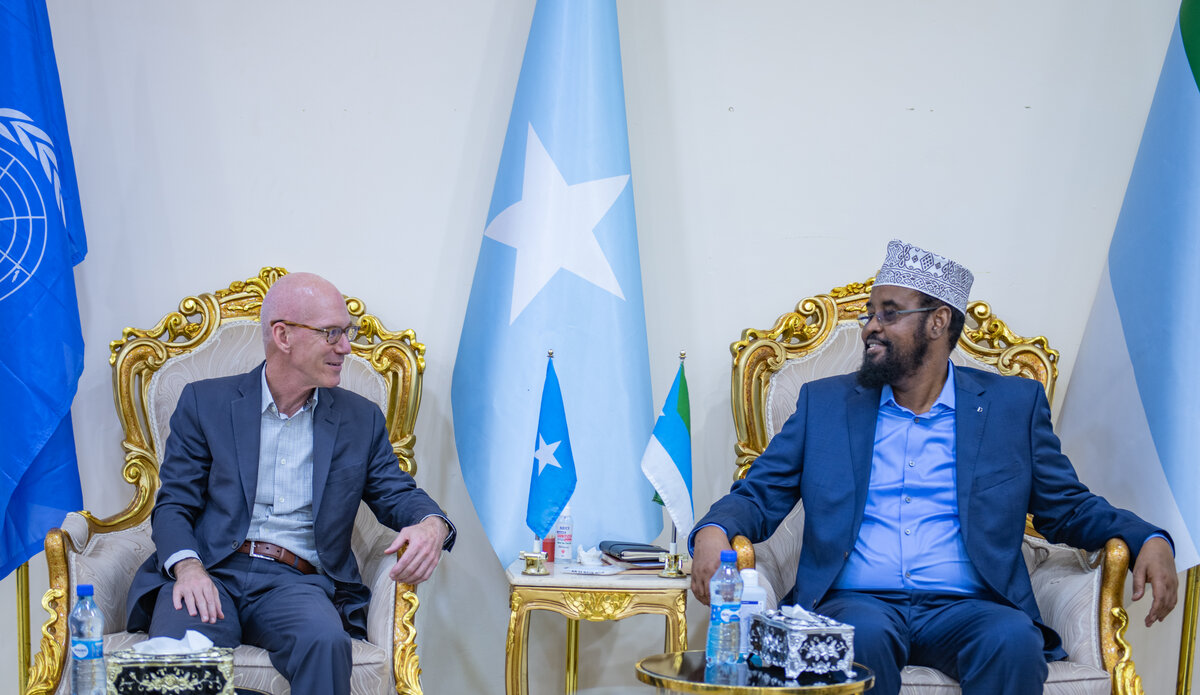UN Special Representative discusses humanitarian and political developments in Jubaland
Kismayo – Humanitarian, security and political developments, including the formation of district councils, were among the issues covered in discussions today by top United Nations officials in Somalia on their visit to Jubaland.
A high-level delegation headed by the UN Secretary-General’s Special Representative for Somalia, James Swan, met with President Ahmed Mohamed Islam ‘Madobe,’ members of his administration and representatives of local civil society.
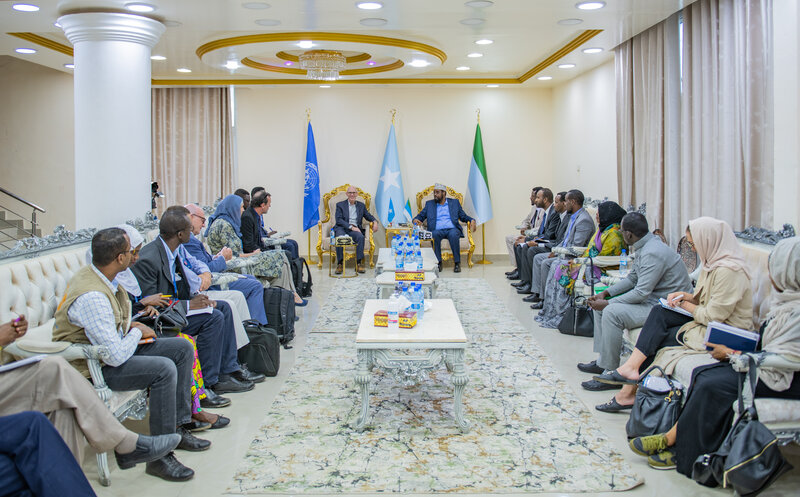
Humanitarian emergency
“This visit is one of several we are making to the Federal Member States to focus attention on the prolonged drought, which is the worst in four decades and has devastated and ravaged many parts of the country. Here, in Jubaland, the drought has led to emergency levels of food insecurity,” the Special Representative said addressing the press in the state’s capital, Kismayo.
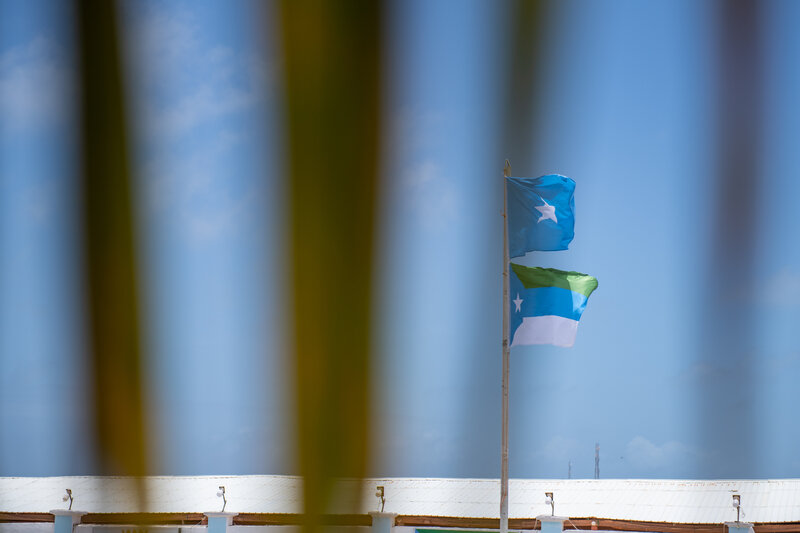
Mr. Swan spoke about the UN’s commitment to continue advocating for more international donor support to prevent famine in Somalia adding that in its humanitarian actions the UN family is working side-by-side with local humanitarian partners.
“We urge federal and state officials in Somalia to continue to collaborate in addressing severe water shortages and drought conditions and to make further progress on security, and governance to respond to the needs of the people,” the UN official added.
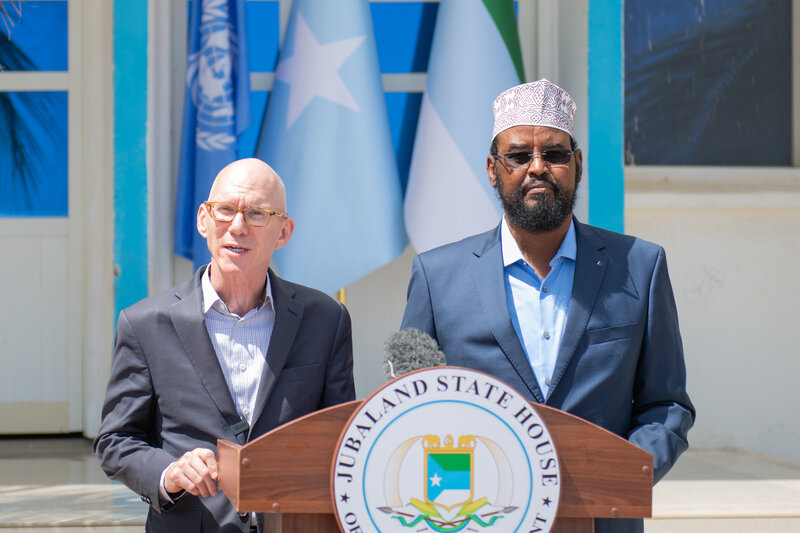
According to the latest report of the UN Office for the Coordination of Humanitarian Affairs (OCHA), about 7.8 million Somalis have been affected by the drought, with more than 1 million displaced by drought and searching for food, water, pasture and livelihoods.
The report says Kismayo hosts almost 125,000 people, mostly displaced by drought and living mainly in congested settlements with limited water, sanitation and health facilities. In the Gedo region of Jubaland, its capital Garbahaarrey hosts about 1,800 displaced families.
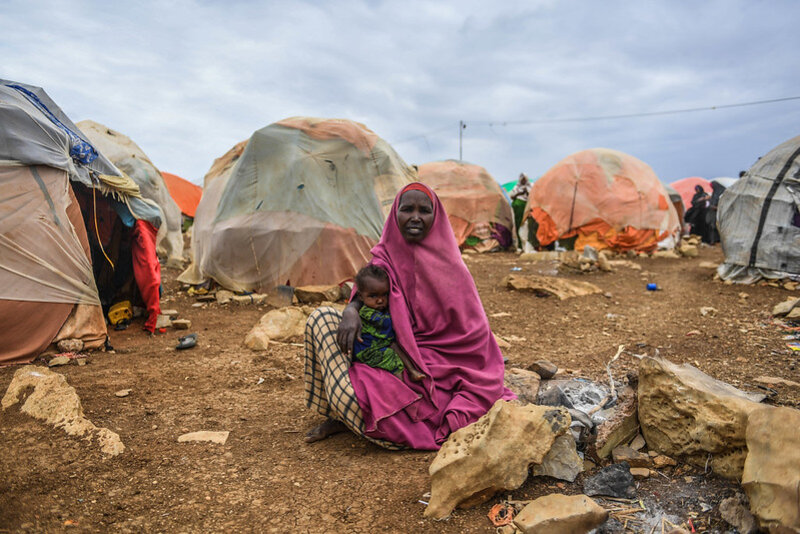
This year’s Humanitarian Response Plan for Somalia seeks around $1.5 billion to meet the country’s most critical humanitarian needs. By the end of August, 65 per cent of that had been received. However, critical sectors remain underfunded, and needs are growing.
Inclusive governance
Mr. Swan also took the opportunity to discuss with President Madobe and his cabinet issues of stronger federal and state collaboration, peace and state building at both federal and state levels.
“Beyond the issue of the drought response, the United Nations stands ready to support the Jubaland administration in the formation of district councils, and in advancing reconciliation within Jubaland state,” said Mr. Swan
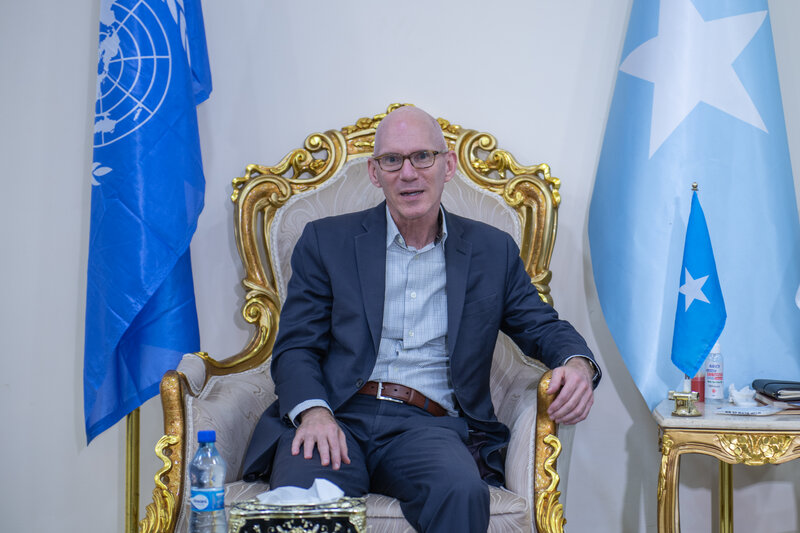
The UN official also underscored that the areas of security, reconciliation, social and economic development need to be inclusive.
“We urge, in this regard, due representation of women, youth and minority communities in governance and leadership.”
Addressing the United Nations Security Council in early September, the Special Representative said that in Somalia women remained under-represented in cabinet positions and parliamentary committees. Only 13 per cent of cabinet members are women, and 21 per cent of parliamentary committee members.
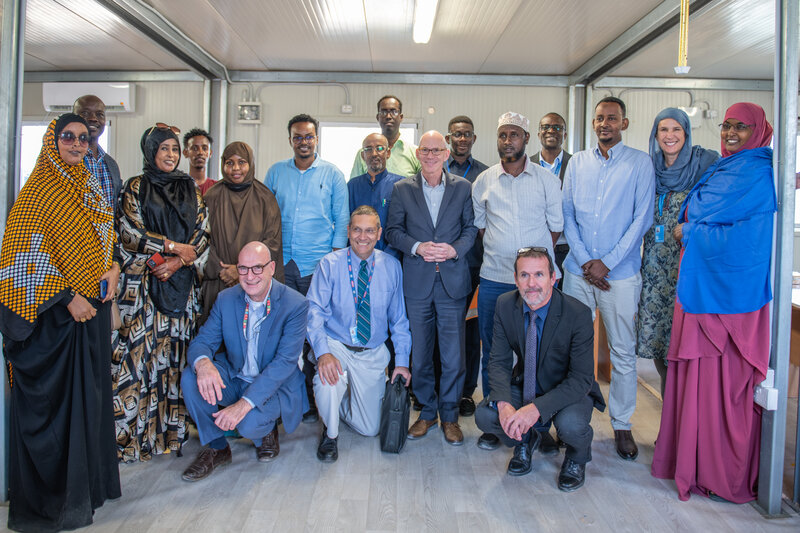
During the visit, Mr. Swan and his delegation also met with civil society representatives including the Jubaland Non-State Actors Association (JUNSAA), the Journalists’ Association of Jubaland (JAJ), the Somali Women Solidarity Organization (SWSO) and the Somali Girls’ Umbrella for Development (SOGUD).
Jubaland is the latest in a series of high-level UN visits around the country as part of the UN’s support to federal and state humanitarian, development and security priorities. The Special Representative has so far visited Puntland, South West State and Galmudug.
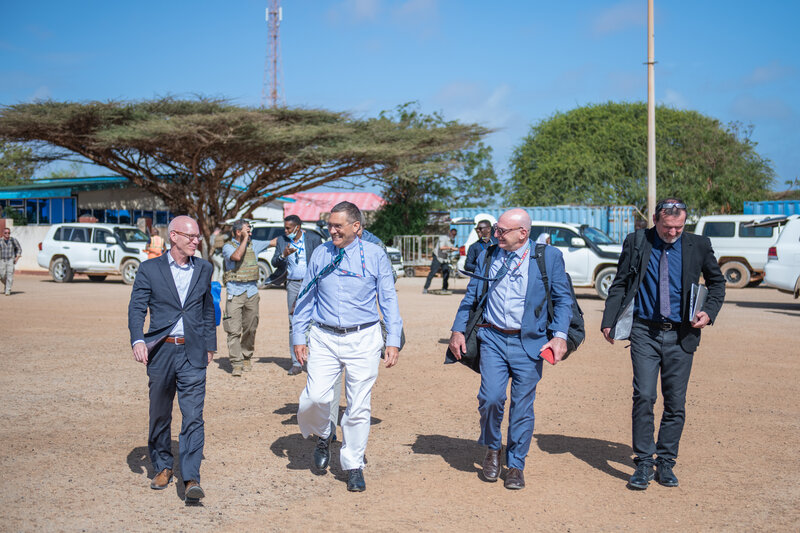
Mr. Swan, who also heads the UN Assistance Mission in Somalia (UNSOM), was accompanied in Kismayo by the Resident Representative of the United Nations Development Programme (UNDP) in Somalia, Jocelyn Mason; Representative of the Food and Agriculture Organization (FAO) in Somalia, Etienne Peterschmitt; Country Representative of the United Nations Population Fund (UNFPA) in Somalia, Edward Adeniyi Ojuolape; and Deputy Country Director of the World Food Programme (WFP) in Somalia, Laura Turner.
The delegation reiterated the UN’s commitment to continuing to work together with President Madobe, his team and the people of Jubaland as they build a better future.
 UN
UN
